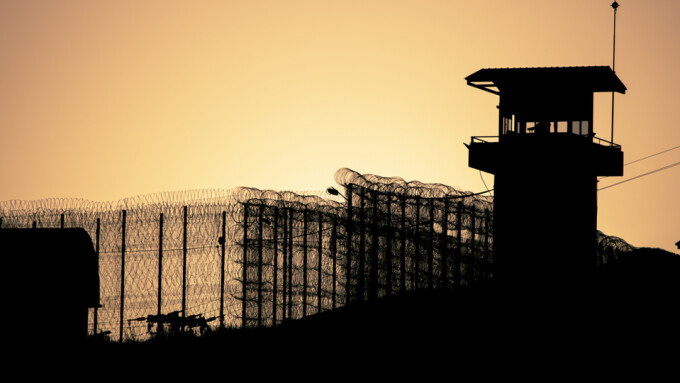SIOUX FALLS, S.D. — This week, federal judges for the 8th U.S. Circuit Court of Appeals ordered a district court judge to address a controversial South Dakotan law banning pornography in prisons.
The restrictive policy, which was established in 2014 and last updated in May 2017, prohibits any material featuring nudity or sexual content. This broadly encompasses any “pictorial or other graphic depiction where male or female genitalia, pubic area, buttocks or female breasts are exposed.”
The rule is so ill defined that it covers both actual pornography as well as novels and nude works of classical art. The Argus Leader reported that “several Renaissance pictures of works of Michelangelo[‘s]” were confiscated along with manga and the novels “Thornes of Desire” and “Pride and Prejudice: The Wild and Wanton Edition.” Under this rule, inmates found with such material are subject to “disciplinary action.”
The ban even covers outgoing letters, a point of contention for Charles Sisney, the inmate bringing the case to court and whose books and art were confiscated. Sisney’s lawyers said that the restriction on mail violates his First Amendment rights.
Gizmodo reported that constitutional scholar Steven Morrison, who argued some of the case in court, told The Daily Republic, “Prisoners do not give up their First Amendment rights. If a prison can show that restricting material protected by the First Amendment is related to a penological interest such as security or safety, the courts tend to give wide discretion to prisons, as they should. But there’s no evidence of that in this case. It is literally unprecedented. The policy prohibits an entire class of speech, sexually explicit content, and goes beyond that. There are no exceptions.”
Sisney began the fight soon after the rule was established and eventually won support from the ACLU of South Dakota and the National Coalition Against Censorship. He appealed a 2016 ruling by the district court even though it largely landed in his favor; it has since been vacated due to being based on an older, less restrictive policy made in 2000 and not the 2014 version.
For now, Sisney must wait for the decision to be made — without his books and without his art.










